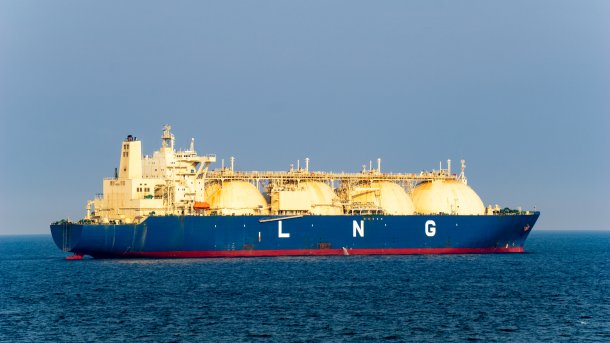Rügen LNG terminal: Federal Administrative Court still sees gas supply crisis
Conservationists had filed a lawsuit against a connecting pipeline to the LNG terminal. The court, however, sees an urgent necessity.

(Bild: The Mariner 4291 / Shutterstock.com)
Opponents of the planned LNG terminal on the island of Rügen have suffered a heavy defeat at the Federal Administrative Court. The court, based in Leipzig, rejected the complaints of two environmental associations against the planning approval decision. The case concerned a 50-kilometer Baltic Sea connection pipeline, which is required to feed the regasified liquefied gas in Lubmin into the national gas grid.
The German environmental organization Deutsche Umwelthilfe and Naturschutzbund Deutschland (Nabu) had filed a lawsuit. However, they were unable to prevail against the planning approval decision by the Stralsund Mining Authority with urgent applications in August 2023.
Gas crisis persists according to the court
The ruling by the Federal Administrative Court now also takes a clear stance on the question of whether there is still a need for new import opportunities for natural gas in Germany. Critics argued that sufficient capacity had been created with existing new terminals in Wilhelmshaven, Brunsbüttel, Stade and Lubmin, as these are in addition to existing pipelines abroad, through which Germany also receives natural gas.
In its statement, however, the court refers to a continuing gas supply crisis as a result of the cessation of Russian supplies and the destruction of the Nord Stream 1 and 2 natural gas pipelines in the Baltic Sea. As a result, the exemptions created by the federal government to implement LNG construction projects more quickly are legal. Among other things, this involves the elimination of time-consuming environmental impact assessments. These are often a point that leads to complaints and delays in planning projects.
Two special ships in Mukran
Two floating terminal ships (Floating Storage and Regasification Units, FSRU) are to receive and regasify the cryogenic liquefied natural gas from gas tankers in the port of Mukran. It will be fed into the long-distance grid via the connecting pipeline. The FSRUs have an annual regasification capacity of 10 to 15 billion cubic meters in total and, in the opinion of the court, are "suitable for contributing to securing the gas supply, particularly via the gas grid in Eastern Germany". Climate protection concerns have been adequately considered, it added.
Critics of the project, including the municipality of Binz, are now hoping for success with further legal action.
(mki)